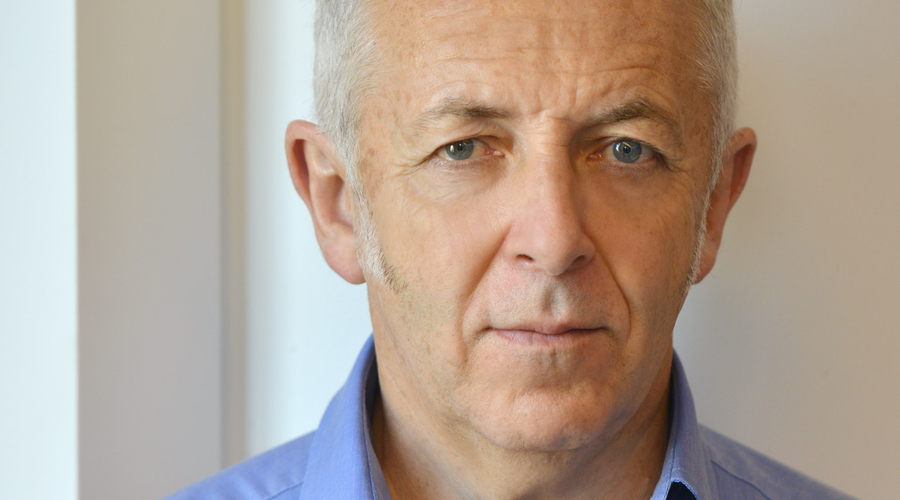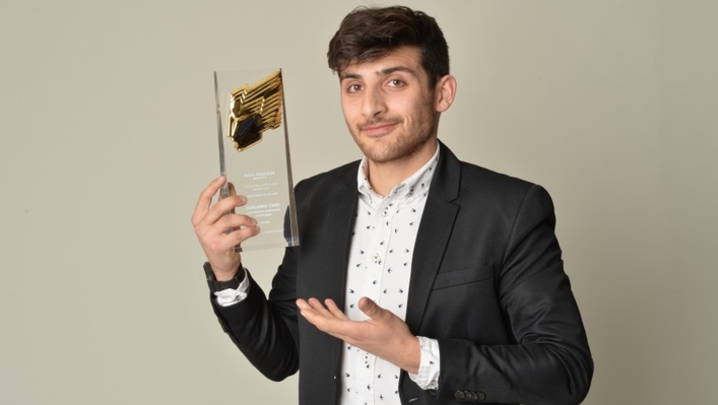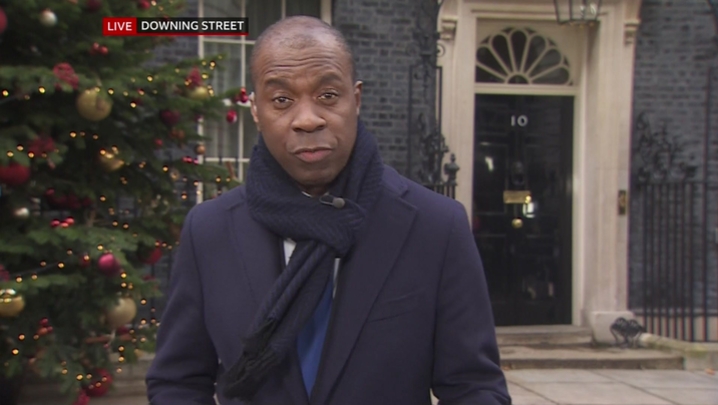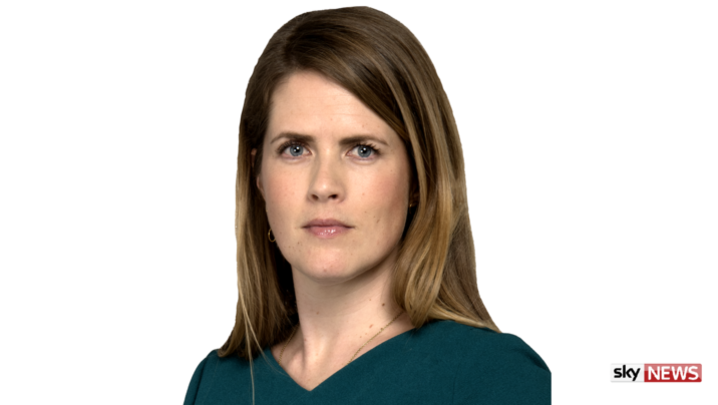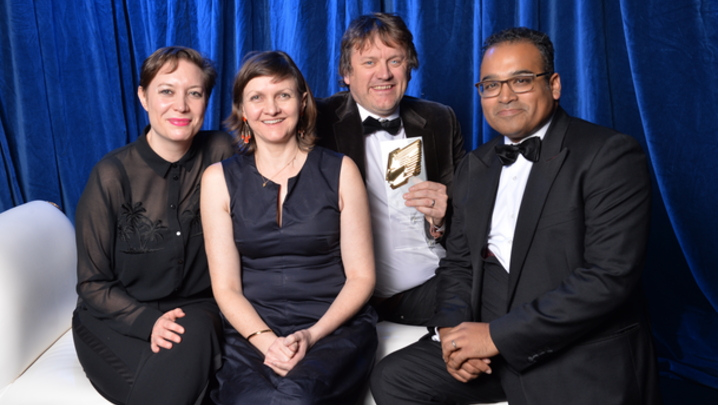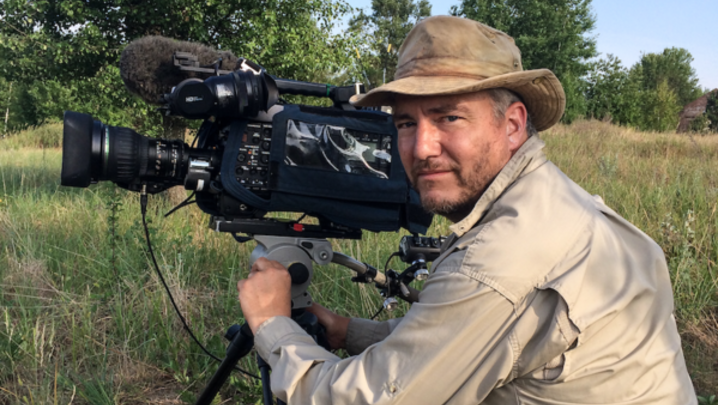“Quite a lot of my days involve men with beards and Kalashnikovs,” says Jeremy Bowen, the BBC’s Middle East Editor.
“It’s an all-consuming job which can be immensely satisfying, but it demands a great deal and you have to be prepared to make that commitment… Sounds awful [but] it’s a lot of fun and you get to travel and someone else pays for it.”
Bowen has become a household name during his 33 year career at the BBC, reporting from conflict zones across the world. He can still reel off the names of the hotels he’s stayed in while reporting from El Salvador, Bosnia, Croatia and Iraq. “I’m a bit obsessed with hotels,” he admits.
His work has earned him a number of awards, including RTS Interview of the Year in 2016 for his encounter with President Assad. This year he’s nominated for Television Journalist of the Year alongside Krishnan Guru-Murthy and Matt Frei.
“It’s nice to be nominated,” he says, though he doesn’t have his trophies lined up on a mantelpiece. “I’ve got an Emmy in the loo. The dog is very interested in it.”
Bowen has seen immense change in his industry since he joined the BBC as a news trainee in 1984.
“In the 1980s there was a massive drinking culture. I think some afternoons there would be no one sober in the newsroom. That’s all changed.”
The BBC’s demand on its journalists to produce more content for more platforms has been one of the greatest changes Bowen has experienced, a system he describes as a “voracious machine.”
A greater challenge, however, is the increasing danger in the Middle East where Bowen spends much of the year. When he was appointed as the BBC’s first Middle East Editor in 2005 he would try to fly home every weekend to see his young children. It doesn’t work like that anymore. “You can’t go to Baghdad for a week and hope to get anything decent. You’re talking a two, three week trip, probably, because you spend your first week going round drinking tea with people and trying to persuade them to let you do things.” It’s the same thing in Syria, Yemen, Egypt and Libya he says.
Another challenge is the shift in the perception of foreign correspondents.
“When I started out, even in Bosnia in former Yugoslavia, I think we were pretty much viewed as non-combatants, and I think now, very often, we’re not.”
The threat to journalists’ personal safety in regions such as northern Syria means reporters have to be more creative in how they gather news and bring it to a television audience. The fact that technology means a news package can be sent direct from the frontline means there is little respite from the danger.
“When I first started going to hostile environments – wars – you’d be guaranteed that you’d probably have a comfortable night because you’d have to try and get back to the main hotel, which was normally way behind the frontline, to feed your material. Now you can feed it from where you are.”
On Bowen’s first trip to Afghanistan in 1989, his team turned up with a tonne of gear, requiring an lorry to transport it and two engineers who spent five days rewiring a TV station to feed to an old Soviet satellite. “Now you’d manage with a couple of backpacks probably.”
Despite the dangers, Bowen’s career is the fulfilment of a childhood dream. The son of a journalist and a photographer who met at a Western Mail and South Wales Echo Christmas party, Bowen knew he wanted to travel from an early age. Having studied history at University College London, he embarked on a masters degree in international affairs, specialising in American foreign policy. He still find it useful to this day, and believes that understanding international politics gave him an edge in his early days at the BBC.
His advice to young journalists is to “not fuck it up…. Have an objective, get some training. If you’re interested in a region, whether it be the Middle East or North America or Europe, read a lot. That’s how you get an edge to what’s happening.”
The life of a foreign correspondent is not to be recommended to people looking for a nine to five job. “You have to be prepared to cancel things at the last minute [and] be really unpopular among your friends.”
He is rather scathing of people who say they want to be a war correspondent. “What do you mean by ‘war correspondent’?” he challenges. “You need first off to be a journalist, and then you might find yourself covering wars.”
“You don’t just go to wars for the sake of it,” he adds. “You’ve got to have a reason because I think it can be very intrusive, and prurient almost, to be turning up at the worst days of someone’s life just because ‘I want to be a war correspondent.’”
After more than three decades working for BBC News, Bowen is a self-confessed BBC lifer. At 57, and with two teenage children at home, he has no plans to retire “until I’m so decrepit I have to.”
With danger in the Middle East worsening, and a desire to spend more time with his family in London, Bowen says he is open to offers for his next career move, “but what the next job is, I’m not sure. Maybe a mixture of things. But you know, come on guys. If you’re reading this, make me an offer – and that includes the BBC senior management team too!”
Jeremy Bowen was nominated for the RTS Television Journalist of the Year award at the RTS Television Journalism Awards 2017.
Read interviews with his fellow nominee Krishnan Guru-Murthy and category winner Matt Frei. See the winners here.

